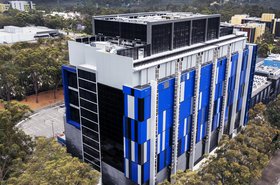A former Samsung engineer has been sentenced to six years in prison for leaking 340 billion won ($24.5 million) worth of OLED technology secrets to China.
Five associates of the former engineer were also sentenced for having passed along the privileged information to the guilty party.
Of the five, three other Samsung Display employees were sentenced to between one and two years, while two others were handed suspended sentences.
The engineer was indicted in October 2023 on charges of illegally obtaining optical systems for excimer laser annealing (ELA) technology, used in the production of Samsung’s OLED displays, to sell to Chinese firms between 2018 and 2020.
Used in semiconductor manufacturing, annealing is the process by which a wafer is heated to a high temperature to activate the dopants – a substance added to a material to alter its physical properties – and repair any damage caused by the previous processing steps.
Korean news outlet JoongAng Daily reported that the former employer had worked at Samsung for over ten years before leaving to found their own display companies in both South Korea and China. The individual was found to have smuggled Samsung OLED display technology for use at their domestic firm, before attempting to sell it on to companies in China via the organization they had established in the region.
An investigation agency valued the trade secrets leaked by the former engineer at 340 billion won.
In a statement reported by JoongAng Daily, the prosecution said: “The advanced technology that had been accumulated by the victim company by investing large sums of investment over a long period of time was wrongly used for personal matters, making this criminal case highly condemnable; furthermore, it has contributed to a great loss for the nation, which is why the accused has been sentenced to a heavy punishment.”
Earlier this year, South Korea introduced tougher sentencing laws for anyone convicted of leaking or stealing technology information.
Under the revised Prevention of Divulgence and Protection of Industrial Technology Act, prison terms for those found guilty of leaking the country's intellectual property abroad or smuggling designated core technologies out of South Korea have significantly increased, as have the possible fines that can be doled out.
As defined by the act, "national core technology" refers to technologies that "may have a significant adverse effect on national security and the development of the national economy if divulged abroad, due to their high technological and economic value in domestic and foreign markets or the high growth potential of related industries."







